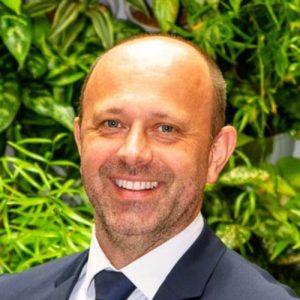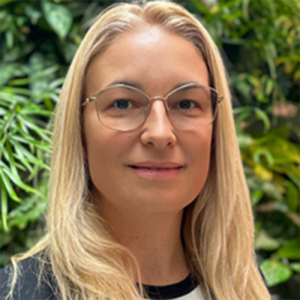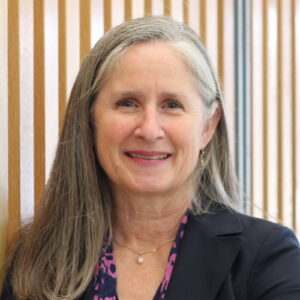ECR Committee Events
Welcome to the ISEK ECR Committee Events Page!
Here you will find a curated list of upcoming and past events organized by the Early Career Researcher (ECR) Committee of ISEK. Our events are designed to support students, postdoctoral researchers, and other early career researchers by providing opportunities for professional development, networking, and engagement within the ISEK community.
Join our events to boost your knowledge and connect with other members of the ISEK community!
Webinar Recording Disclaimer
Please note that webinars are recorded. By your presence at an ISEK webinar, you consent to be photographed, filmed and/or otherwise recorded. Your registration constitutes your consent to such photography, filming and/or recording and to any use for any purpose in accordance with the Society mission and standard of conduct. You are welcome to keep your camera off during these events, you and not the Society, is responsible for these setting options.
Upcoming Events
No upcoming events. Check back soon!
Past Events
Funding your future: Grant writing for research and commercial success
June 3, 1:00-4:00 pm CET, 9:00-12:00pm AET, 7:00-10:00am ET
This interactive online workshop explores the essentials of successful fundraising for both academic and business environments. Participants will learn why mastering fundraising is crucial for advancing their careers, discover key principles for writing convincing grant proposals to secure extramural funding from diverse sources, and gain practical strategies tailored to the academic and business sectors. The program includes expert-led sessions with real-world examples, and dedicated Q&A segments to address participants’ questions. Designed for advanced students and junior researchers seeking to enhance their fundraising skills, the workshop offers actionable guidance for securing financial support and building sustainable projects.
Workshop content:
- Why is it important for you to learn how to raise funding?
- Key principles of successful fundraising: How to convince others to fund you
- Specifics of fundraising in an academic context
- Specifics of fundraising in a business context
Presenters
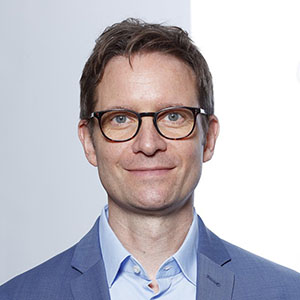
Ralf Dahm
Director of Scientific Management at the Institute of Molecular Biology (Germany)
Ralf is an experienced science manager with over 20 years of leadership experience in leading international research organisations. He is currently Director of Scientific Management at the Institute of Molecular Biology gGmbH (IMB) in Mainz, Germany. Previously, he held a similar role at the Spanish National Cancer Research Centre (CNIO) in Madrid and managed a large-scale European research project at a Max Planck Institute.
Key achievements related to fundraising include:
- Ralf directly raised over €25 million in external funding and contributed to raising more than €100 million in additional investments.
- He has extensive teaching experience as a visiting professor and guest lecturer in science communication and management, incl. fundraising, at universities in Germany, Italy, and Austria as well as for international consortia.
- Ralf has a strong publication record with 4 books (incl. one co-authored with Nobel laureate Christiane Nüsslein-Volhard), 12 book chapters, ~50 scientific articles, and over 50 interdisciplinary/popular science articles. His h-index is 40.
Ralf holds an MSc in Business Administration from the Technical University of Mainz (Germany), an MSc and PhD in Biochemistry from the University of Dundee (Scotland), and a Habilitation in Neuroscience from the Medical University of Vienna (Austria).
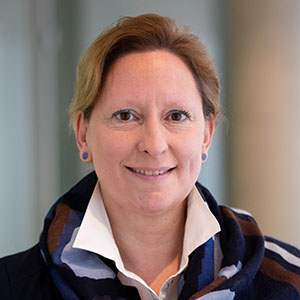
Helia Berrit Schönthaler
Head of Business Development at the University Hospital Heidelberg (Germany)
With more than 12 years in technology transfer and high-tech startup consulting, Dr. Helia Schönthaler has advised over 15 life science startups and helped secure over €12 million in public funding. At Bosch Health Campus, she developed a comprehensive technology transfer concept, managed the €25 million business plan, and established and led a translational research group. She also contributed to establishing the translational research institute “Robert Bosch Center for Tumor Diseases” (RBCT). Her current work at University Hospital Heidelberg includes supporting researchers with all transfer-related matters, managing patent portfolios, negotiating research and licensing agreements, and supporting startups with investor documentation and business development strategies.
Grant Writing tips and insights from ISEK Fellows and Basmajian Lecturers
Aleš Holobar and Tanja Botić
Aleš Holobar, coordinator of the HybridNeuro project
Tanja Botić, project manager of the HybridNeuro project
University of Maribor, Slovenia
Which funding schemes should early-career researchers (ECRs) focus on?
In Europe, early-career researchers should consider Marie Skłodowska-Curie Doctoral Networks and Postdoctoral Fellowships. These can be especially useful to start building international networks and an independent research profile. While not purely research-focused, Erasmus+ calls – particularly those tied to innovation offer valuable experience in areas like project design, proposal writing, and managing smaller-scale initiatives (the first experiences in leading proposals). In widening countries, these are often a researcher’s first exposure to leading an international project. National funding programmes, offered by many research agencies, provide specific postdoctoral or early-career grants but have in mind to include an international dimension, as cross-border collaboration can significantly enhance research quality, visibility, and future career prospects.
What about funding opportunities for mid-career and senior researchers?
In Europe, mid-career researchers’ stage aligns well with Horizon Europe Pillar II (Cluster 1: Health or Cluster 4: Digital, Industry & Space), which offers RIA (Research and Innovation Actions) and IA (Innovation Actions) suitable for collaborative bioengineering projects. In widening countries, WIDERA Twinning can strengthen institutional ties with leading EU partners, while the Hop On Facility allows mid-career and senior researchers to join existing Horizon Europe consortia – ideal for gaining collaborative experience and visibility. Erasmus+ Alliances for Innovation may help to expand interdisciplinary and entrepreneurial initiatives. Alongside National funding programmes offered by national research agencies or various ministries. Experience in building bigger consortia and managing a bit complex budget, managing PhD and post-doc students is particularly valuable at this stage. ERC Starting and Consolidator Grants offer opportunities to pursue high-risk, high-gain research, of course, for those who excel as MSCA holders beforehand.
At this stage, it’s also important to start integrating commercialisation & entrepreneur thinking – mapping out potential applications, stakeholders, and exploitation plans. Digital Europe program, EU4Health or other Health & Industry Initiatives may be considered here. If the research is ready to move beyond the lab, EIC calls or larger public-private partnerships under various programs may be appropriate. EIC calls can be a good fit when you’re looking to push a novel idea toward implementation.
Senior researchers should aim for larger-scale, high-impact projects with leadership roles. ERC Advanced Grants provide opportunities to pursue bold, frontier research with or without immediate commercial expectations. In widening countries, ERA Chairs, Teaming, and Excellence Hubs initiatives offer funding to build and lead institutional research excellence, often involving long-term strategy, recruitment, and infrastructure development. Senior researchers should also focus on attracting investment and forming innovation ecosystems, often through strategic collaboration with industry or regional/national stakeholders through regional development funds, the I3 program, various EC initiatives like missions, and recently, AI initiatives. In addition, transnational collaborations with countries outside Europe, such as Canada, Japan, or others, can be highly valuable and often lead to long-term international cooperation.
What is one common mistake ECRs make when preparing grant applications?
A frequent mistake is focusing excessively on technical and scientific complexity while overlooking clear articulation of impact – why the project matters, feasibility, and alignment with the call. Researchers often get too absorbed in their own ideas. Additionally, setting unrealistic goals or KPIs can raise doubts about the project’s feasibility and deliverability, especially if there is insufficient evidence of early achievements or preliminary results to support those ambitions.
What advice would you give to ECRs on crafting a compelling funding proposal?
Start early, especially for calls that are announced regularly. Review last year’s call documents to understand the priorities and structure. Develop a clear and compelling story: What is the problem? How will you address it? And why does it matter? Make sure your objectives are realistic and measurable. Don’t underestimate any section of the proposal – all parts are important and should be addressed properly. Share your draft early (pre-review) with experienced colleagues or mentors for constructive feedback. Peer review is not about criticism or stealing ideas – it’s a chance to improve your proposal and boost your chances of success.
Can you share a personal experience of a rejected grant and what you learned from it?
A proposal we submitted was rejected due to weak treatment of gender aspects, open science and lack of early stakeholder involvement. In other, insufficient clarity on starting and target TRLs made the scope of the project unclear. These are now standard expectations, as for instance, early collaboration with stakeholders. The feedback was valuable and helped us improve later proposals but it was also a reminder that you must put your best effort into every submission. Some opportunities don’t come around every year. In EU, work programmes typically change every 1-2 years, with shifting priorities and evolving calls. If a proposal needs to be rewritten from scratch for a new call, it can take a significant amount of time – often during evenings and weekends – while regular research, teaching and administrative responsibilities continue.
Take-home message: rejection is part of the process and growth. But by being strategic, starting early, preparing thoroughly and especially understanding the right timing, you can reduce wasted effort and improve your chances of success.
Personal note: Wishing clarity to all who stay curious, keep learning and take initiative early. It takes real courage and persistence to grow through each stage of this journey. The path is demanding but it brings lasting growth and a broader perspective. Stay committed, every day.
Catherine Disselhorst-Klug
Catherine Disselhorst-Klug
RWTH Aachen University, Germany
Which funding schemes (national and international) should early-career researchers (ECRs) focus on in your field?
Choose a funding scheme that helps build your research profile, often through national individual project funding, enabling you to establish a small research group, manage funds, attend conferences, and publish.
What about funding opportunities for mid-career and senior researchers?
As scientific experience grows, utilize funding schemes that enhance networking and international visibility. Integration into complex interdisciplinary projects with multiple partners is crucial, with senior scientists expected to lead these initiatives.
What is one common mistake ECRs make when preparing grant applications?
Most unsuccessful research proposals lack focus, clearly defined hypotheses, and objectives. It takes courage to narrow your scope. Ensure that your entire application centers on your research objective, as clarity is essential. Often, less is more in this context, and relying solely on AI won’t suffice for success.
What advice would you give to ECRs on crafting a compelling funding proposal?
Believe in yourself. A successful proposal stems from strong knowledge of the field, relevant publications, an innovative idea, and the courage to defend it. Present a clear narrative around your research idea that demonstrates your passion and engages the reviewer effectively. This clarity is crucial for making an impact.
Can you share a personal experience of a rejected grant and what you learned from it?
Like my first manuscript, my initial research proposals were rejected, which is normal and should not discourage you. Every idea deserves a second chance; your efforts are never wasted. If you’re passionate about an idea, you’ll continue to develop it, as innovative concepts often take time to find their moment.
I have a little personal story to tell: I submitted my first research proposal on the use of robots in care in 2013. The reviewers tore it up. They accused me of saying that it was unethical to use robotics in care. And then coronavirus hit in 2020 and there was a shortage of nurses who could care for the infectious patients. Since then, I have received enough funding for the project. However, the technical development came too late to help during the coronavirus pandemic.
Jayne Garland
Jayne Garland
Western University, Canada
Which funding schemes (national and international) should early-career researchers (ECRs) focus on in your field?
In Canada, NSERC Discovery grants are a must. NSERC funds a program of research and not a specific research project. This gives the PI flexibility to take the research in different directions as warranted.
What about funding opportunities for mid-career and senior researchers?
Any, and all, funding opportunities need to be explored! It is very competitive. Having international co-investigators can strengthen a proposal.
What is one common mistake ECRs make when preparing grant applications?
Every aspect of the grant MUST have preliminary data to establish feasibility. Therefore, ethics approval needs to be obtained prior to submission.
What advice would you give to ECRs on crafting a compelling funding proposal?
Grants are won or lost in the first summary page. The novelty and impact must be clear but not overstated (this is a balancing act). You need to captivate the reviewers’ interest to read your grant in detail, as reviewers will have a pile of grants to review and relatively tight deadlines. You don’t want your grant to be the one that they skim through.
Can you share a personal experience of a rejected grant and what you learned from it?
For CIHR, don’t get discouraged with one or two rejections – especially if the Scientific Officer (SO) notes that your grant is important and has the potential for impact. There is queue of other great grants before you and you need to keep improving until you rise to the top. If you are triaged on the first and second rounds, you need to fundamentally change the research question.

